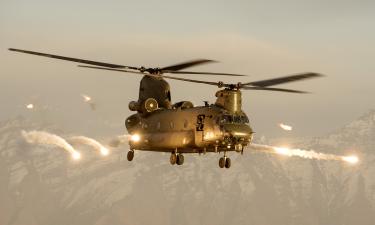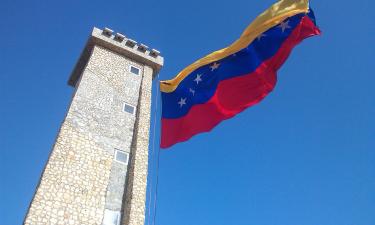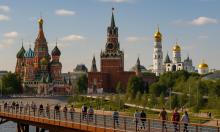Washington is trying to make a few steps away from exhausting confrontation with Moscow
The talks on strategic stability between the Russian Federation and the United States took place in Geneva on July 28б 2021. The parties did not disclose the results, so the summit went unnoticed. However, the very fact of the talks and the intention to continue them speak volumes.
Who won the unnoticed talks between Russia and the United States in Geneva
The consultations took place after Presidents Vladimir Putin and Joe Biden agreed to hold them during their meeting in Geneva on June 16.
The Russian delegation was headed by Russian Deputy Foreign Minister Sergei Ryabkov. According to him, the parties discussed how to overcome the crisis that has obviously developed in the field of arms control.
The Americans were 100% prepared for the talks, Ryabkov pointed out.
"This is a positive moment. From the US, an impressive delegation representing all departments arrived," the official said, adding that the negotiations were conducted in a businesslike and constructive atmosphere," Ryabkov said.
Following the talks, the US State Department said in a statement that the US delegation discussed:
- US policy priorities and the current security environment,
- national perception of threats to strategic stability,
- prospects for New Nuclear Arms Control,
- the format of future sessions of the Strategic Stability Dialogue.
An anonymous State Department official who participated in the talks told the AP that the US was pleased with the initial exchange of views and set out a hope that it would be the beginning of a sustainable and productive dialogue on arms control and other strategic issues.
The parties discussed topics of nuclear arms control, space exploration, artificial intelligence and cyber security.
The discussion of cybersecurity was focused on strategic issues and nuclear weapons rather than on ransomware or hacker attacks.
According to Ryabkov, "we need to deal with most complex subjects such as attempts to use the Internet and digital technologies to manipulate weapons control systems and so on."
Is there a compromise?
The American official noted that the Russians, as expected, expressed concerns about the American missile defense system, whereas the American side responded by saying, as before, that the missile defense system targeted Iran and North Korea, rather than Russia.
According to Western analysts, a key obstacle in the talks is the fact that Russia views the US missile defense system as a long-term threat, whereas the Americans see it as a war containment tool.
The Biden administration wants Moscow to agree to limit its non-strategic nuclear weapons outside the new START treaty.
Noteworthy, the Donald Trump administration pulled out from two treaties with Russia on strategic security (the INF and the Open Skies) and was ready to withdraw from START, but Joe Biden prevented this from happening.
The Ukrainian crisis fades into the background
Undoubtedly, the very fact of negotiations and the intention to continue them come as a positive development in the US-Russian relationship. It also gives a hope to restore at least some of the ties that were lost after the Crimean spring of 2014 and the crisis in the southeast of Ukraine.
The Ukrainian problem fades into the background. It does not globally affect relations with China, issues to overcome the pandemic, climate change, etc.
It appears that the United States is trying to move away from confrontation with the Russian Federation. Judging by statements that come from Washington, the Americans fear that Russia's new leader could be even more uncomfortable to deal with than Vladimir Putin. Given Russia's recent achievements in the defense industry, Russia could become a much more dangerous enemy to the United States.
In a comment to Pravda. Ru, Alexei Mukhin, the general director of the Center for Political Information, was not so optimistic. Russia and the United States, within the framework of bilateral agreements, demonstrate to the whole world, and above all to China, that the leaders of the two countries can come to an agreement, he noted.
However, the political scientist believes, optimism is premature, because there is a very high level of Russophobia in the US establishment.
"And, of course, our American partners will have to backpedal on that after a while," the political scientist told Pravda. Ru.
The expert is sure that Russia is playing a political game here too, because Russia makes China believe that Moscow will not go behind China's back to talk to the USA.
Subscribe to Pravda.Ru Telegram channel, Facebook, RSS!




